
Senior writer Tina Hesman Saey is a geneticist-turned-science writer who covers all things microscopic and a few too big to be viewed under a microscope. She is an honors graduate of the University of Nebraska-Lincoln where she did research on tobacco plants and ethanol-producing bacteria. She spent a year as a Fulbright scholar at the Georg-August University in Göttingen, Germany, studying microbiology and traveling. Her work on how yeast turn on and off one gene earned her a Ph.D. in molecular genetics at Washington University in St. Louis. Tina then rounded out her degree collection with a master’s in science journalism from Boston University. She interned at the Dallas Morning News and Science News before returning to St. Louis to cover biotechnology, genetics and medical science for the St. Louis Post-Dispatch. After a seven year stint as a newspaper reporter, she returned to Science News. Her work has been honored by the National Academies of Sciences, Engineering and Medicine, the Endocrine Society, the Genetics Society of America and by journalism organizations.

Trustworthy journalism comes at a price.
Scientists and journalists share a core belief in questioning, observing and verifying to reach the truth. Science News reports on crucial research and discovery across science disciplines. We need your financial support to make it happen – every contribution makes a difference.
All Stories by Tina Hesman Saey
-
 Health & Medicine
Health & MedicineHe made beer that’s also a vaccine. Now controversy is brewing
An NIH scientist’s maverick approach reveals legal, ethical, moral, scientific and social challenges to developing potentially life-saving vaccines.
-
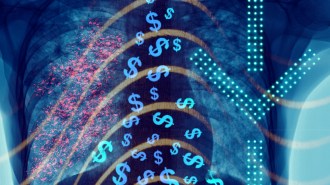 Science & Society
Science & SocietyFunding chaos may unravel decades of biomedical research
Battles between the Trump administration and academic institutions are putting important biomedical advances in limbo.
-
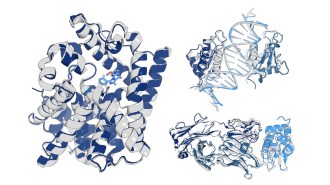 Artificial Intelligence
Artificial IntelligenceThe AI model OpenFold3 takes a crucial step in making protein predictions
The open-source AI model improves transparency in predicting how proteins interact with other molecules, which could speed up drug discovery.
-
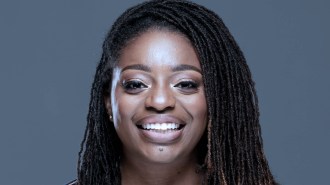 Health & Medicine
Health & MedicineMost women get uterine fibroids. This researcher wants to know why
Biomedical engineer Erika Moore investigates diseases that disproportionately affect women of color.
-
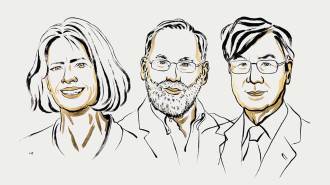 Health & Medicine
Health & MedicineFinding immune cells that stop a body from attacking itself wins medicine Nobel
Shimon Sakaguchi discovered T-reg immune cells. Mary Brunkow and Fred Ramsdell identified the cells’ role in autoimmune disease.
-
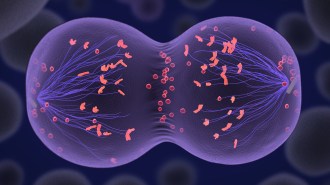 Health & Medicine
Health & MedicineScientists made human egg cells from skin cells
More work needs to be done to create viable human embryos, but the method might someday be used in IVF to help infertile people and male couples.
-
 Health & Medicine
Health & MedicineMore young U.S. adults report trouble with memory and focus
From 2013 to 2023, the prevalence of self-reported difficulties with memory, concentration and decision-making nearly doubled among young adults.
-
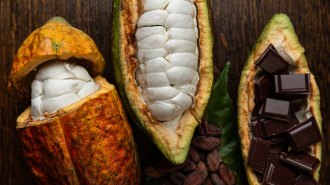 Microbes
MicrobesWhat makes chocolate taste so good? It’s the microbes
Beans matter, but microbes may be the real secret to fine chocolate flavor. Scientists are building starter cultures that may improve quality.
-
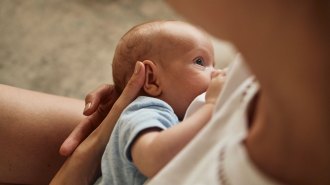 Health & Medicine
Health & MedicineCould babies get bird flu through breast milk? Maybe, a study hints
H5N1 bird flu might infect human mammary glands, potentially allowing the virus to show up in breast milk.
- Genetics
This snail may hold a secret to human eye regeneration
Golden apple snails can regrow full, functional eyes. Studying their genes may reveal how to repair human eye injuries.
-
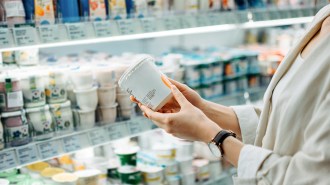 Health & Medicine
Health & MedicineSome probiotics could feed, rather than fend off, infections
Probiotics containing Lactobacillus gasseri Lg-36 prevented C. difficile infections in mice, but L. acidophilus probiotics made infection more likely.
-
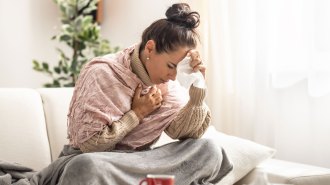 Health & Medicine
Health & MedicineYou may already have some protection from bird flu, but don’t count on it
Studies suggest that people who had seasonal flus or vaccinations have low antibody levels against H5N1 bird flu.